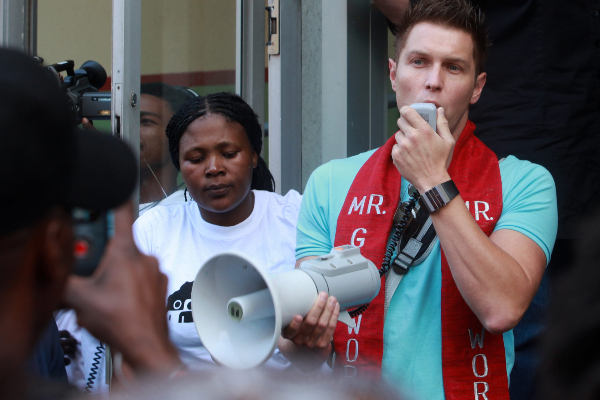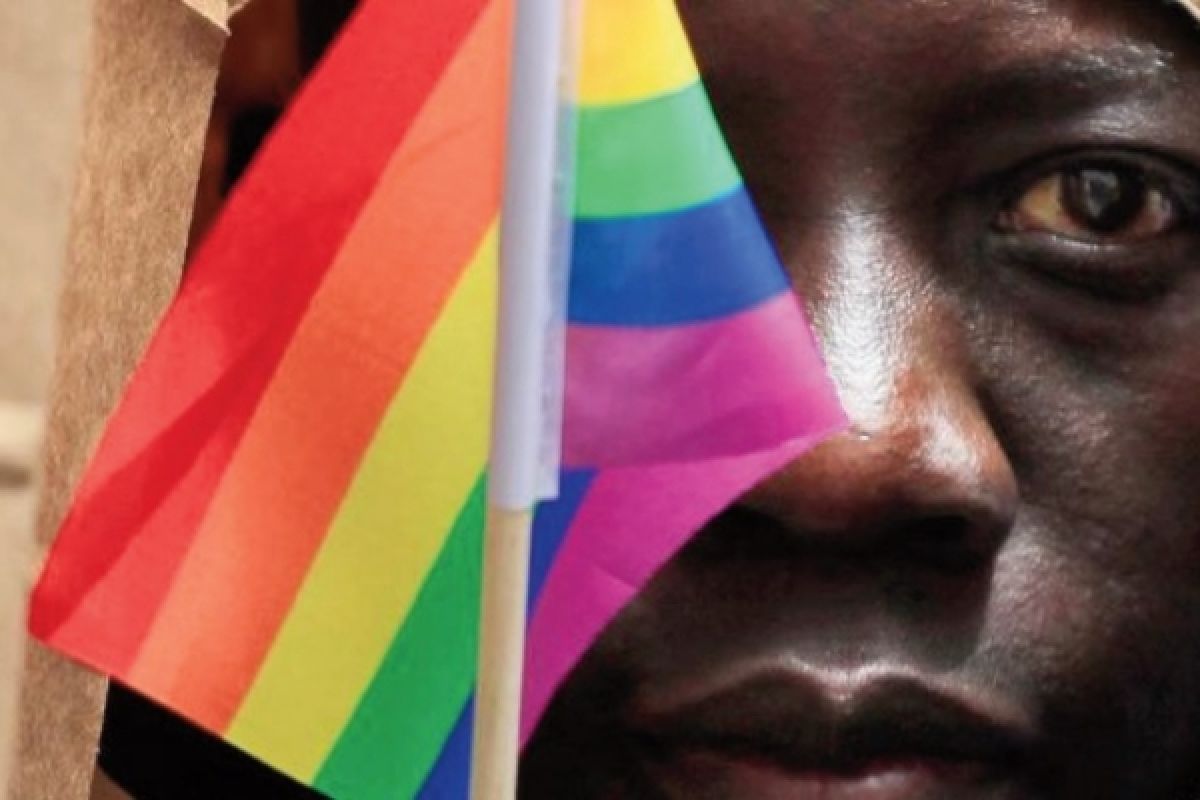Malawi's new government announces possible changes to anti-sodomy legislation, including allowing gay couples to marry.
Malawi made headlines last month after announcing to a UN conference that it may not only decriminalise gay sex – but it is also considering whether to allow gay couples to get married, too.
The decision by the newly elected government would mark a major policy shift in the staunchly Christian country, which only a decade ago had faced a fierce Western backlash, after two men in a same-sex relationship were convicted and sentenced to a lengthy jail term.
The couple, 26-year-old Steven Monjeza and 33-year-old Tiwonge Chimbalanga, were arrested in December 2010 two days after celebrating an engagement party.
They were sentenced to an effective 14-year jail term for ‘unnatural acts’, although both were subsequently pardoned following a meeting between UN Secretary General Ban ki Moon and then President Bingu wa Mutharika the same year.
Since then, Malawi has been cited by western media as one of the most ‘intolerant’ countries for gay and lesbian people.
However, all that could be about to change, after the minister of justice and constitutional affairs, Titus Mvalo, presented Malawi’s human rights report to the United Nations’ 36th session of the Universal Periodic Review in Geneva, Switzerland.
The report revealed that the Malawi Human Rights Commission was conducting a study on whether same-sex relationships could be legalised.
The international gay rights’ organisation OutRight Action International applauded the comments by Mvalo.
‘This is a bold step taken by Malawi in declaring the possibility to decriminalise consensual same sex relations,’ said its Africa Programme Officer, Yvonne Wamari.
‘The forum they chose to make such a statement speaks volumes of their recognition of LGBTIQ persons within the human rights spectrum.’
Wamari said there has been a recent trend in southern Africa towards decriminalising same-sex relations, including in the countries of Angola and Botswana.
But while Mvalo’s statements were welcomed by many gay rights’ activists, others pointed out that this is not the first time Malawi has made public statements suggesting reform to laws around sex.
Shortly after taking office in May 2012, the country’s newly installed president Joyce Banda committed to urgently repealing some of the laws, including ‘the provisions regarding indecent practices and unnatural acts.’
But Banda’s promises of urgent action remained just that until she left office in 2014.

Meanwhile, OutRight Action International believes a change in the law will achieve little in itself, and pointed to countries like South Africa where gay and lesbian people face considerable persecution, despite strong constitutional protection.
‘To see real change there will need to be a change in perceptions to an extent of recognition and tolerance of LGBTIQ individuals allowing them to live as their true selves,’ said the spokeswoman.
‘In Africa, we are still a far cry from that. Traditions and culture are too deeply ingrained in us that anything that goes against that is labelled un-African.’
In July, the High Court of Uganda awarded damages equivalent to $1,340 to a group of 20 homeless gay people who had been arbitrarily detained and denied legal access after complaints about their sexual orientation.
The court ruled that Uganda’s prison system’s refusal to allow them access to legal representation violated their rights.
She said the reality for gay people in other African countries was even worse, with authorities using ‘forced anal testing’ to secure sodomy convictions.
There are 72 jurisdictions around the world that still criminalise private, consensual sexual activity between adults of the same sex, according to the London-based Human Dignity Trust.
Almost half of these are in Commonwealth countries like Malawi and Uganda.
Meanwhile, there are 11 jurisdictions in which the death penalty is imposed in sodomy cases, including Nigeria and Somalia, as well several where the possibility of capital punishment exists, like Mauritania.
But while capital punishment is still on the statute in many African countries, the Human Dignity Trust said there was a movement away from the imposition of the death penalty.
In July, the International Lesbian, Gay, Bisexual, Trans and Intersex Association (ILGA) reported that Sudan’s Sovereign Council had approved new laws and passed amendments to existing laws, including the removal of the death penalty and the administration of 100 lashes as punishment for same-sex intimacy.
The Senate of Gabon, meanwhile, also voted to decriminalise same-sex relations in July – much to the outrage of Muslim and Christian groups, as well as more than half of MPs who either abstained or voted against the changes.
Speaking at the time, the country’s one-time finance minister Blaise Louembe denounced the country’s decision to decriminalise homosexuality, saying: ‘My attachment to the constitution, and to our ancestral values do not command me to authorise or encourage such practices.’
But while laws against same-sex relationships are often justified on the grounds that homosexuality is a Western import, the human rights’ lawyer Abadir M Ibrahim believes the opposite is true.
‘Pre-colonial Africa entertained a diverse set of ways in which non-heterosexuality and non-heteronormativity were expressed,’ said the Ethiopian.
‘It was colonialism that introduced the now widespread religious and legal norms that policed sexuality and gender.
‘The current wave of homophobia is also based on Western anti-LGBT rights discourses and in some part is sponsored by Western/American evangelical groups.’
An estimated four in five Malawians oppose legalising gay relationships, according to Alan Msosa an academic with the University of Bergen in Norway who has been interviewing locals on the topic.
‘Eighty per cent believe that homosexual sex is wrong, but one in three believe God loves people in same-sex relationships.’




